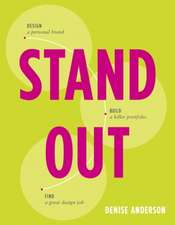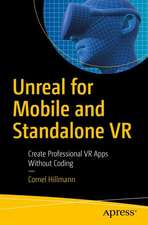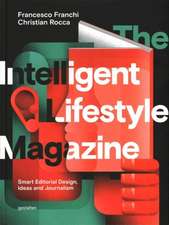UX for XR: User Experience Design and Strategies for Immersive Technologies: Design Thinking
Autor Cornel Hillmannen Limba Engleză Paperback – 13 iun 2021
Extending traditional digital platforms to the new frontier of extended reality (XR) requires taking into account what best practices, new concepts, and conventions have been established and what learnings can be brought forward from case studies involving industry leaders. By looking at practical examples from the field of handheld AR breakthroughs, virtual reality (VR) success stories and experimental interaction concept of pioneering XR platforms, you'll see how it's possible to map out a framework of user experience (UX) guidelines to close in on opportunities and challenges that lay ahead.
This book defines, identifies, and analyzes UX practices for XR environments and reviews the techniques and tools for prototyping and designing XR user interactions. You'll approach the design for experiential state and spatial cognition, using established UX key performance indicators, while taking into account the social dynamics, emotional framework and wider industry context.
UX design and strategy for the XR space is a new frontier, so UX for XR focuses on case studies and industry research to illustrate the relationship between UX design and the growth of immersive technologies. Practical examples will demonstrate how you should apply UX design principles using designing interactions in XR by identifying the importance of spaces, senses and storyboarding.
What You'll Learn
- Explore the challenges and opportunities of designing for XR
- See how spatial interaction is revolutionizing human computer interaction
- Examine sensory input and interaction beyond the screen
- Work with 3D Interaction Design and build a strong 3D UX
- Understand VR and augmented reality essentials for emotion-rich user experiences
- Apply UX research techniques for the XR space
Who This Book Is For
This book is primarily for UX designers, consultants, and strategists; XR developers; and media professionals
Preț: 211.37 lei
Nou
Puncte Express: 317
Preț estimativ în valută:
40.44€ • 42.34$ • 33.47£
40.44€ • 42.34$ • 33.47£
Carte disponibilă
Livrare economică 17-31 martie
Preluare comenzi: 021 569.72.76
Specificații
ISBN-13: 9781484270196
ISBN-10: 1484270193
Pagini: 263
Ilustrații: XXIV, 255 p. 77 illus., 75 illus. in color.
Dimensiuni: 155 x 235 x 23 mm
Greutate: 0.4 kg
Ediția:1st ed.
Editura: Apress
Colecția Apress
Seria Design Thinking
Locul publicării:Berkeley, CA, United States
ISBN-10: 1484270193
Pagini: 263
Ilustrații: XXIV, 255 p. 77 illus., 75 illus. in color.
Dimensiuni: 155 x 235 x 23 mm
Greutate: 0.4 kg
Ediția:1st ed.
Editura: Apress
Colecția Apress
Seria Design Thinking
Locul publicării:Berkeley, CA, United States
Cuprins
Chapter 1: Introduction.- Chapter 2: The History and Future of XR.- Chapter 3: The Rise of UX and How it Drives XR User Adoption.- Chapter 4: UX and experience design: From screen to 3D space.- Chapter 5: Pioneering platforms and UX learnings.- Chapter 6: Practical approaches: UX and XR in the real world.
Notă biografică
Cornel Hillmann is a media designer and CG artist with over 20 years of experience in the media and entertainment, advertising and design industry. He has worked with brands including Panasonic, Jaguar, The Future is Wild, The Singapore International Film Festival, Razor and many others. Cornel has lectured masterclasses for immersive media post-production, advanced 3D-, VR- and media design-courses at Limkokwing University and is the author of “Unreal for Mobile and Standalone VR” (Apress, 2019).
Textul de pe ultima copertă
Extending traditional digital platforms to the new frontier of extended reality (XR) requires taking into account what best practices, new concepts, and conventions have been established and what learnings can be brought forward from case studies involving industry leaders. By looking at practical examples from the field of handheld AR breakthroughs, virtual reality (VR) success stories and experimental interaction concept of pioneering XR platforms, you'll see how it's possible to map out a framework of user experience (UX) guidelines to close in on opportunities and challenges that lay ahead.
This book defines, identifies, and analyzes UX practices for XR environments and reviews the techniques and tools for prototyping and designing XR user interactions. You'll approach the design for experiential state and spatial cognition, using established UX key performance indicators, while taking into account the social dynamics, emotional frameworkand wider industry context.
UX design and strategy for the XR space is a new frontier, so UX for XR focuses on case studies and industry research to illustrate the relationship between UX design and the growth of immersive technologies. Practical examples will demonstrate how you should apply UX design principles using designing interactions in XR by identifying the importance of spaces, senses and storyboarding.
You will:
- Explore the challenges and opportunities of designing for XR
- See how spatial interaction is revolutionizing human computer interaction
- Examine sensory input and interaction beyond the screen
- Work with 3D Interaction Design and build a strong 3D UX
- Understand VR and AR essentials for emotion-rich user experiences
- Apply UX research techniques for the XR space
Caracteristici
Highlights the new challenges and opportunities for UX designers with XR, VR, and AR Provides a historical perspective of the UX industry and analyzes how the design paradigm shift will shape the future Examines the major UX and XR technologies and tools such as Apple’s ArKit, Google’s ARCore and Facebook’s Oculus platform





















